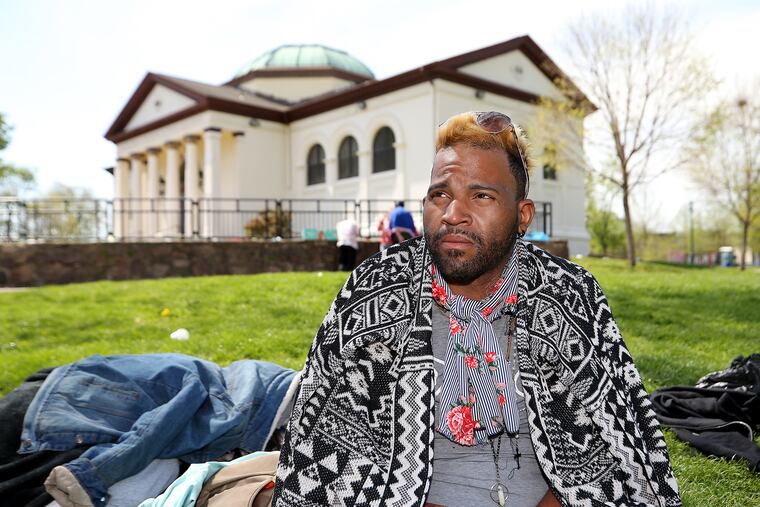Philly leaders should support homeless people in Kensington just as they did in Center City | Opinion
Philadelphia residents and local leaders cannot allow the crisis in Kensington to turn into an us-vs.-them scenario.

Beaten with baseball bats. Punched and stomped. Hit by bricks. Shot with BB guns. Sprayed with fire extinguishers. Belongings set on fire.
Such vicious acts of violence should be roundly condemned — except, it seems, when the victims are persons experiencing homelessness and drug use.
A recent article in The Inquirer reports the rising number of such attacks in Kensington. The perpetrators are young people — teens as well as kids as young as 8 years old. In recent months, they have been randomly targeting persons sleeping in the parks, and local outreach workers worry the attacks may still escalate.
Violence directed at persons who are homeless has been happening for as many years as there has been homelessness — despite the persistent myth that the persons on the streets are the ones who are dangerous and to be feared. This latest wave of attacks is the most recent tragedy inflicted on those who are already in crisis from a toxic blend of poverty and drug use.
» READ MORE: Attacks against homeless people in Kensington are on the rise: ‘Somebody is going to get killed’
Philadelphia residents and local leaders cannot allow the crisis in Kensington to turn into an us-vs.-them scenario. Such an approach is doomed to fail — and only makes tensions in the neighborhood worse.
Kensington has a long history of severe poverty and community disinvestment, and in more recent years, it has been seen as an epicenter of the opioid crisis in Philadelphia. At the same time, new development efforts threaten to displace the poorest persons, including those who are homeless and using drugs. But we can only make progress on these issues if we come together on common ground and work on solutions for all people in the community.
The outreach workers on the ground in Kensington, who bear witness to the attacks on individuals on the streets, understand this well. Elvis Rosado, a health educator who works with the city’s Health Department, states bluntly that the young perpetrators are essentially terrorizing persons on the streets. “Remember that we are talking about human beings who are being attacked and brutalized just because they are in the situation they are in.” At the same time, Rosado and other health and outreach workers agree that supports need to be in place for those young persons.
In Center City, there has been significant progress in minimizing street homelessness in large part because city officials have sought to look at the broader context, providing the housing and services needed to enable individuals to get off the streets. Doing so enhances the quality of life of these individuals as well as the viability of commerce and tourism in Center City.
In order to do this, we developed strategic partnerships that included the business community and nonprofits, the private sector, and the government, working together to forge solutions that benefited not only the homeless population in Center City but the business owners and residents as well.
» READ MORE: Shuttered Kensington SEPTA stop illuminates depth of Philly’s entrenched social problems
To begin to solve the problems in Kensington, public and private leaders must commit to the same allocation of resources and the same focused attention. This includes more affordable housing, especially for those experiencing homelessness, financial support for existing homeowners and local businesses, increased access to drug treatment and behavioral health services, and more programs for youth.
Philadelphians must have compassion for persons in the grip of drug use and homelessness — and we must have just and equitable policies and programs for the broader community. Individual acts of violence against persons on the streets are in fact part of the same social crises that spawn the violence of poverty and the violence of drug use.
Ultimately, the needs of the young persons who are perpetrating violence in Kensington are the same as the needs of those they are victimizing: access to decent health care, affordable housing, quality education, and real economic opportunity. These are the building blocks to enable individuals to break the cycle of homelessness and drug use. They are the same building blocks that can create equitable development for the broader Kensington community.
José Benitez is the executive director of Prevention Point Philadelphia. Sister Mary Scullion is the president and executive director of Project HOME.